The evolution of 'Nation' concept and its relevance for contemporary historical moment
DOI :
https://doi.org/10.34069/AI/2023.67.07.26Mots-clés :
nation, aristocracy, estate, society, unification, function, culture, politics, values.Résumé
Understanding the evolution of the concept of "nation" is crucial in comprehending the shifting dynamics of identity, national policy, and global interactions. By tracing the historical development of this concept, from its early origins to its contemporary manifestations, the article aims to shed light on how the idea of the Nation has transformed and adapted to social, political, and ideological changes. The retrospective analysis of 'national' discourse makes possible to demonstrate how the Nation concept expanded its content during the recent centuries. The philosophical and historical study of the Nation provided in the article, and its research from the functional and axiological standpoints, drives us to make a few general assumptions: Nation still can be that kind of mobilizing force that helps unite people in resistance to external aggression; the concept of Nation presumably does not have enough resources to influence the highly developed countries, but still preserves its potential to transform the societies in the developing countries. Some findings and insights presented in this article may contribute into further theoretical research, as well as policy development, and a deeper understanding of the role of nations in an increasingly interconnected world.
Téléchargements
Références
Antonsich, M. (2016). International migration and the rise of the “civil” nation. Journal of Ethnic and Migration Studies, 42(11), 1790-1807. https://doi.org/10.1080/1369183x.2016.1155980
Antonsich, M. (2018). Living in diversity: Going beyond the local/national divide. Political Geography, 63, 1-9. https://doi.org/10.1016/j.polgeo.2017.12.001
Antonsich, M., & Petrillo, E.R. (2018). Ethno-cultural diversity and the limits of the inclusive nation. Identities, pp. 1-19. https://doi.org/10.1080/1070289X.2018.1494968
Bayly, C.A., & Biagini, E.F. (2008). Giuseppe Mazzini and the globalisation of democratic nationalism 1830-1920. Oxford: Oxford University Press for the British Academy, 419 pages.
Borinshtein, Y., Stovpets, O., Kisse, A., Balashenko, I., & Kulichenko, V. (2022). Educational marketing as a basis for the development of modern Ukrainian society and the state. Amazonia Investiga, 11(54), 146-157. https://doi.org/10.34069/AI/2022.54.06.14
Borinshtein, Y., Stovpets, O., Kukshinova, O., Kisse, A., & Kucherenko, N. (2021). Phenomena of freedom and justice in the interpretations of T. Hobbes and J. Locke. Amazonia Investiga, 10(42), 255-263. https://doi.org/10.34069/AI/2021.42.06.24
Diamond, J.M. (2020). Upheaval: how nations cope with crisis and change. London: Penguin Books, 500 pages.
Fichte, J.G. (2008). Addresses to the German nation. Cambridge, UK: Cambridge University Press, 202 pages.
Forrest, A., & Jones, P. (1991). "Regionalism and Linguistic Conformity in the French Revolution" by Martyn Lyons. In Proceedings Paper "Reshaping France: Town, Country And Region During The French Revolution". Manchester: Manchester University Press.
Gellner, E. (1983). Nations and Nationalism. Oxford: Blackwell Publishing.
Glyz, I.I. (1990). The Cyril and Methodius Society. Kyiv: Naukova Dumka, 540 pages. (In Ukranian)
Henderson, A., & McEwen, N. (2005). Do Shared Values Underpin National Identity? Examining the Role of Values in National Identity in Canada and the United Kingdom. National Identities, 7(2), 173-191. https://doi.org/10.1080/14608940500144286
Herder, J.G., & Goethe, J.W. (1964). Von deutscher Art und Kunst (Of German Character and Art: manifesto of the 'Sturm und Drang' in 1773). Oxford: Clarendon Press, 196 pages.
Hom, S.M. (2013). On the Origins of Making Italy: Massimo D'Azeglio and "Italy has been made, Italians must be made". Italian Culture, 31(1), 1-16. https://doi.org/10.1179/0161462212Z.00000000012
Hrushevsky, M. (2021). History of Ukraine-Rus' (Mykhailo Hrushevskyi. History of Ukraine-Rus, 1895-1933). Volume two. Ed. by Pasicznyk U.M., Poppe A. Edmonton: Canadian Institute of Ukrainian Studies Press, 606 pages.
Huang, Z., Yang, Z., & Meng, T. (2023). National Identity of Locality: The State, Patriotism, and Nationalism in Cyber China. Journal of Chinese Political Science, 28(1), 51-83. https://doi.org/10.1007/s11366-022-09820-4
Huddy, L., & Khatib, N. (2007). American Patriotism, National Identity, and Political Involvement. American Journal of Political Science, 51(1), 63-77. https://doi.org/10.1111/j.1540-5907.2007.00237.x
Jensen, K.K., & Mouritsen, P. (2017). Nationalism in a Liberal Register: Beyond the “Paradox of Universalism” in Immigrant Integration Politics. British Journal of Political Science, 1-20. https://doi.org/10.1017/s0007123416000806
Johnston, A.I. (2017). Is Chinese Nationalism Rising? Evidence from Beijing. International Security, 41(3), pp. 7-43. https://doi.org/10.1162/ISEC_a_00265
Joppke, C. (2007). Beyond national models: Civic integration policies for immigrants in Western Europe. West European Politics, 30(1), 1-22. https://doi.org/10.1080/01402380601019613
Kostomarov, M. (2021). The Books of Genesis of the Ukrainian Nation (Mykola Kostomarov. Books of the life of the Ukrainian people, 1847). Ed. by Kostiv K. Kyiv: Publishing " Center for educational literature ", 189 pages.
Larin, S.J. (2019). Is it really about values? Civic nationalism and migrant integration. Journal of Ethnic and Migration Studies, 46(1), 127-141. https://doi.org/10.1080/1369183X.2019.1591943
Matthews, J., & Zain, H.B. (2022). Creating one nation? Ethno-national imaginaries, audiences and the critical reception of TV nation branding messages. Nations and Nationalism, 28(4), 1296-1310. https://doi.org/10.1111/nana.12829
Mazzini, G. (1965). Scritti editi ed inediti di Giuseppe Mazzini. Bologna, Imola: Cooperativa tipografico-editrice P. Galeati.
Orgad, L. (2015). The Cultural Defense of Nations: A Liberal Theory of Majority Rights. Oxford University Press. https://acortar.link/eNuVU0
Pickel, A. (2013). Nations, National Cultures, and Natural Languages: A Contribution to the Sociology of Nations. Journal for the Theory of Social Behaviour, 43(4), 425-445. https://doi.org/10.1111/jtsb.12018
Renan, E. (2018). What is a nation?: and other political writings. New York: Columbia University Press, 328 pages.
Renan, E., & Hapgood, I.F. (2010). Recollections and letters of Ernest Renan. Kessinger Publishing's legacy reprints, 327 pages.
Schulze, H. (2004). State and nation in European history. München: Beck, 376 p. (In Germany)
Schutter, H. (2021). Taming dignity for multiculturalism. Critical Review of International Social and Political Philosophy, 26(1), 22-38. https://doi.org/10.1080/13698230.2021.1893250
Sieyès, E.J. (2014). What Is the Third Estate? in Emmanuel Joseph Sieyes: the essential political writings. Leiden: Brill, 218 pages.
Silva, M. (2022). Nations as justified substate authorities. Nations and Nationalism, 28(3), pp. 806-824. https://doi.org/10.1111/nana.12850
Smith, A.D. (1988). The ethnic origins of nations. Oxford, UK: Blackwell, 312 pages.
Snyder, T. (2003). The reconstruction of nations: Poland, Ukraine, Lithuania, Belarus: 1569-1999. New Haven: Yale University Press, 367 pages.
Snyder, T. (2022). Bloodlands: Europe between Hitler and Stalin. New York: Basic Books, 547 pages.
Stovpets, O. (2012). Legal-philosophic problems of state policy in respect of information society. NaUKMA Research Papers Law, 129, pp. 84-88. https://ekmair.ukma.edu.ua/handle/123456789/2215
Stovpets, O. (2020). Sinitic civilization's worldview features and their system-forming role in the complex of social relations in modern China. Interdisciplinary Studies of Complex Systems, 17, 59-72. https://doi.org/10.31392/iscs.2020.17.059
Svyrydenko, D., & Stovpets, O. (2020). Chinese Perspectives in the “Space Race” through the Prism of Global Scientific and Technological Leadership. Philosophy and Cosmology, 25, pp. 57-68. https://doi.org/10.29202/phil-cosm/25/5
Tamir, Y. (2021). Why Nationalism. Princeton: Princeton University Press, 224 pages.
Waal, T. (2020). Conditional Belonging: Evaluating Integration Requirements from a Social Equality Perspective. Journal of Intercultural Studies, 41(2), 231-247. https://doi.org/10.1080/07256868.2020.1724906
Westover, J. (2004). National Forgetting and Remembering in the Poetry of Robert Frost. Texas Studies in Literature and Language, 46(2), 213-244. https://doi.org/10.1353/tsl.2004.0010
Wilson, H.F. (2015). An urban laboratory for the multicultural nation? Ethnicities, 15(4), 586-604. https://doi.org/10.1177/1468796815577703
Wrede, M., Bourquin, L., & Jouanna, A. (2016). Nobility and nation in modern times: hierarchy, egalitarianism, loyalty, 16-20 centuries. Ostfildern: Thorbecke Verlag, 339 p.




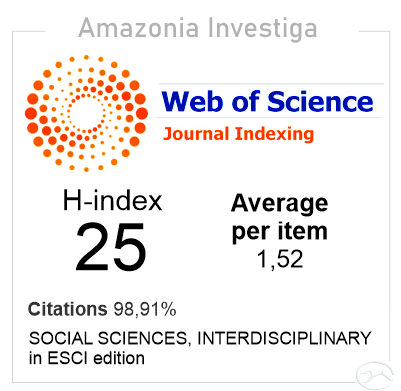







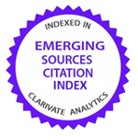
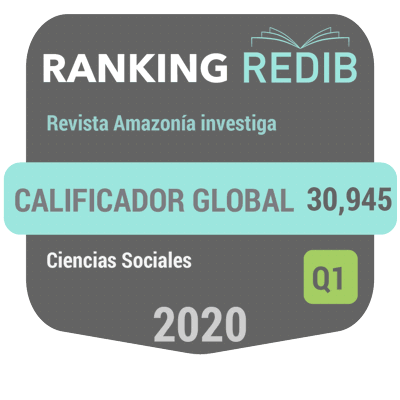




















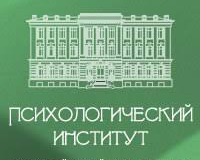












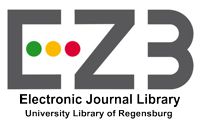

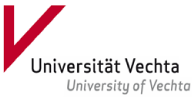



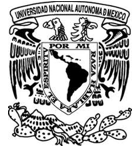











.gif)






